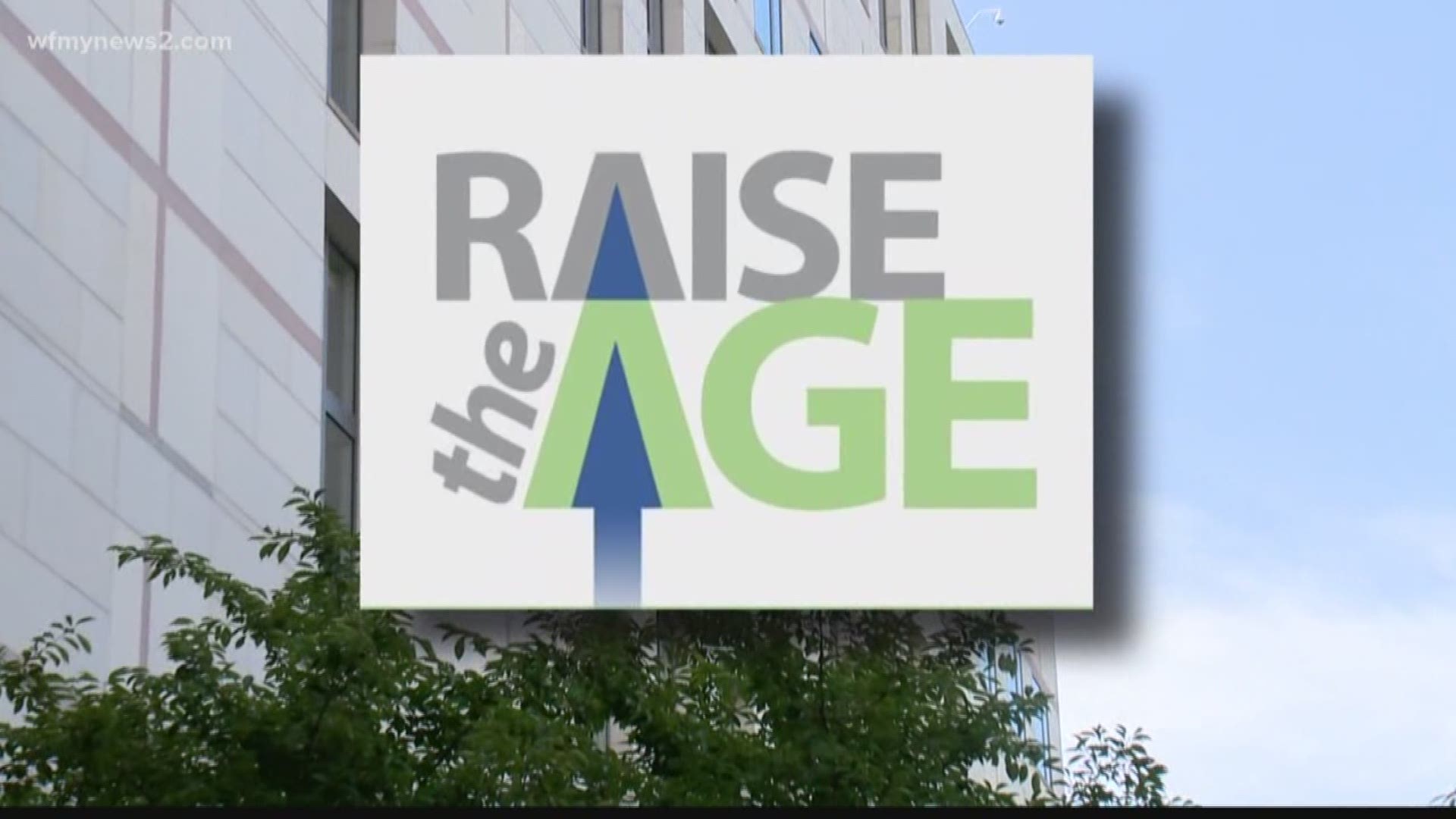RALEIGH, N.C. — Significant changes to North Carolina’s justice system for young offenders and sex-related offenses begin this weekend.
No longer will 16- and 17-year-olds be automatically tried in adult court for most nonviolent or less serious felonies as the state’s long-awaited “Raise the Age” initiative takes effect. Victims of child sex abuse will have more time as adults to seek civil damages against perpetrators. And a court decision preventing women from legally revoking consent is getting overridden.
These changes are among about 30 state laws passed or amended this year that will be enforced starting Sunday.
RAISE THE AGE
North Carolina has been the last state in which 16- and 17-year-olds were automatically prosecuted as adults. Bipartisan legislation approved in 2017 started the clock to end that designation. Supporters say “Raise the Age” will reduce recidivism through the services offered to delinquents and allow young people to avoid the stain of lifetime criminal records in the confidentiality of juvenile cases.
While accused young people at these ages will be initially placed under juvenile court jurisdiction, it will be mandatory for those facing the most serious felonies to be tried in adult criminal court. Others accused of lower-grade felonies could still be transferred there with a judge’s order. Motor-vehicle cases will remain in adult court.
Projections show the shift will put thousands of additional young people annually into the juvenile system. There’s been a massive training effort of law enforcement workers, and the General Assembly has spent some money to hire additional prosecutors, judges, court workers, and other staff. More beds in juvenile detention or development centers also will be needed over time.
SEXUAL ASSAULT
North Carolina’s designation as the only state where women can’t revoke sexual consent — based on a 1979 court ruling — will now be eliminated thanks to a new law.
The law also essentially cancels a 2008 court decision that said sexual assault laws don't apply to people incapacitated because of their own actions, such as taking drugs or alcohol. And the legislation makes clear that it’s illegal to drug someone's drink.
Advocates for sexual assault victims and prevention had sought the changes for years, saying the consent restriction created a loophole that made prosecution difficult.
Another new law also makes it a felony for a physician to have sexual contact with a patient under the premise of treatment.
CHILD ABUSE
The sexual assault changes were contained in legislation that also extends the limited time child sexual abuse victims can sue for civil damages from age 21 to 28.
Any adult also could now sue for damages within two years of the felony criminal conviction of someone related to sexual abuse the adult suffered as a child. And the law gives child sex abuse victims older than 28 a one-time window in which to file lawsuits in 2020 and 2021. The changes come as sex-abuse revelations have received greater attention in society.
The law also extends the statute of limitations for certain misdemeanor child-abuse crimes from two years to 10 and sets new requirements upon adults to report child abuse to authorities.
DEATH BY DISTRIBUTION
A new high-level felony — punishable by several years in prison — has been created to target drug dealers who contribute to a user’s overdose death.
The “Death by Distribution” law is designed to punish the seller severely even when a prosecutor can’t prove the person acted to intentionally harm the victim. Such malice is a key element of murder.
Proponents of the new criminal count say it’s a tool to target the purveyors of opioids in North Carolina.
RELATED: 'Death by Distribution' bill that could send drug dealers to prison for 40 years is now a NC law
ALSO ON THE BOOKS
Other laws taking effect Sunday will:
— increase criminal penalties for people who assault law enforcement officers and first responders with a gun.
— increase punishments for motorists who violate the state’s "move-over" law and a first responder dies or is seriously injured.
— make it a misdemeanor for motorists to go around road blocks set up because of flooded roads, such as during a hurricane.
— make it a crime to impersonate a driver for a ride-sharing company like Uber or Lyft and raise penalties for those who assault legitimate drivers.



